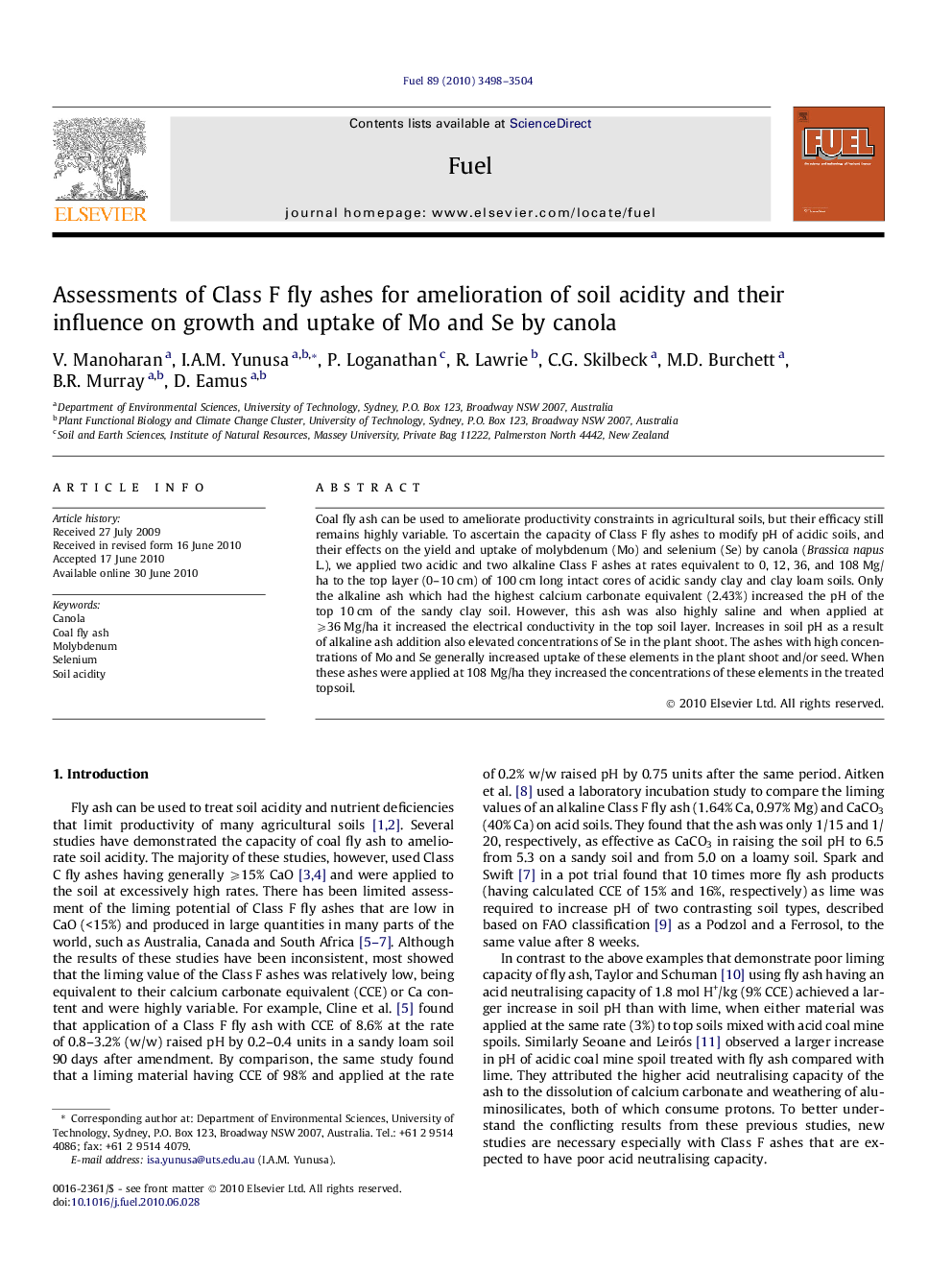| Article ID | Journal | Published Year | Pages | File Type |
|---|---|---|---|---|
| 206869 | Fuel | 2010 | 7 Pages |
Coal fly ash can be used to ameliorate productivity constraints in agricultural soils, but their efficacy still remains highly variable. To ascertain the capacity of Class F fly ashes to modify pH of acidic soils, and their effects on the yield and uptake of molybdenum (Mo) and selenium (Se) by canola (Brassica napus L.), we applied two acidic and two alkaline Class F ashes at rates equivalent to 0, 12, 36, and 108 Mg/ha to the top layer (0–10 cm) of 100 cm long intact cores of acidic sandy clay and clay loam soils. Only the alkaline ash which had the highest calcium carbonate equivalent (2.43%) increased the pH of the top 10 cm of the sandy clay soil. However, this ash was also highly saline and when applied at ⩾36 Mg/ha it increased the electrical conductivity in the top soil layer. Increases in soil pH as a result of alkaline ash addition also elevated concentrations of Se in the plant shoot. The ashes with high concentrations of Mo and Se generally increased uptake of these elements in the plant shoot and/or seed. When these ashes were applied at 108 Mg/ha they increased the concentrations of these elements in the treated topsoil.
